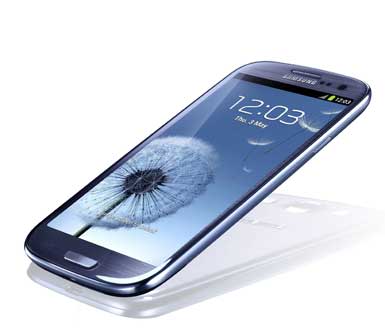Samsung Readies Tizen, a New Mobile Competitor to Google Android and Apple iOS - When Samsung hinted at the Consumer Electronics Show (CES) a few months ago that there is more to the world of smartphones and tablets than Apple's iOS, it was also referring to Google's Android operating system, which runs on Samsung's most popular devices. Now, just days after introducing its newest marquee Android smartphone--the Galaxy S4--Samsung says it will debut a new handset later this year that uses Tizen, an operating system the company has been developing with chip-maker Intel.
Such a move would both support and contradict statements that Samsung Chief Product Officer Kevin Packingham made during a CES panel discussion in January.
Packingham acknowledged that the "jury's still out on how the [mobile operating system] war will play out" and suggested that, given Microsoft's investment in Windows 8, that operating system should not be ruled out as a competitor to iOS or Android. Packingham also said he is often asked why Samsung doesn't make its own mobile operating system. He responded that app developers must, out of economic necessity, write software for the most popular operating systems--typically iOS and Android--while relegating other platforms to the back burner. Besides, he added, "[We] have a good relationship with Google, so [there's] no need to."

Yet Samsung and Intel have spearheaded the development of Tizen--an open-source operating system for smartphones, tablets and other mobile devices--since September 2011. And Samsung's newest phone--as yet unnamed--would be the first on the market to use Tizen, Bloomberg reported last week. The world's largest mobile phone-maker, Samsung had previously mentioned Tizen as a possible alternative to Android for lower-end devices, "so the news that it will be also mixed with the latest and the greatest of the device specs certainly warrants some attention," Aapo Markkanen, a senior analyst at ABI Research blogged last week.
Samsung appears to be decoupling itself from Android, despite the device-maker's reliance on Android's hundreds of thousands of apps to sell Samsung gadgets. "The Galaxy series couldn't fly with any other OS, especially given how little Samsung has invested in Windows Phone," Markkanen blogged. "All signs are pointing to Samsung trying to pull off a 'Great OS Escape' within the next year or two."
Android and iOS may be the dominant mobile operating systems today but the continued growth of smartphones and other wireless gadgets depends on new choices emerging, whether it's the emergence of Windows 8, a resurgence of BlackBerry's platform or some other option, said AT&T's Glenn Lurie, president of emerging enterprises and partnerships, during the same CES panel in which Packingham described Samsung's relationship with Google. "When the iPhone launched there wasn't any competition," but it soon lit a fire under Microsoft, Google and others to get into the market, he added.
Tizen's emergence may seem like a nonstarter right now, but it does shake up the established order in the smartphone market a bit. Android is open source as well, and most people choose mobile devices based on price, carrier service, the availability of apps and other features. The operating system seems almost incidental. If you want an iPhone, you're going to get iOS along with it. If you like non-Apple mobile phones, chances are they will come with some version of Android or perhaps Windows. Tizen's impact will likely first be felt in China, a country whose rift with Google has caused the company to scale back some of Android's features in that market, making it less appealing to handset-makers like Samsung, according Minyanville Media.
It will likely take five, even 10 years for mobile operating system competition to shake out, said Rajeev Chand, managing director and head of research for equity research firm Rutberg & Co., who moderated the CES panel. Although he didn't specifically mention Tizen, he did add, "I think there's a damned good chance that there will a third and fourth [mobile] operating system."
Galaxy S III image courtesy of Samsung ( Scientific American )
No comments:
Post a Comment